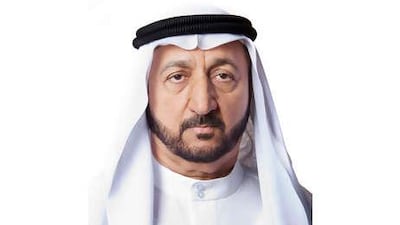Sultan Saqr al Suweidi, a Dubai member of the Federal National Council, says he has no interest in serving four more years in the federal organisation if it remains a mere advisory body. Currently, the council discusses laws drafted by government institutions, but its decisions and findings are not binding.
"The council should be able to draft laws and decide its own agenda without having to get government approval," Mr al Suweidi said. Mr al Suweidi is one of several FNC members who have spoken openly in recent months about the need to give the council greater influence. "Our recommendations [should] become binding resolutions, just like government resolutions," he said. He has said in the past that he would rather have the council given more powers than be opened to full-scale elections.
He passionately advocates, however, instilling the democratic experience in the country's youth, as well as broadening the number of elected bodies, such as municipal councils. "The youth parliament in Sharjah, as well as the municipal councils, could serve as training grounds for future members," he said. Every year, pupils across Sharjah elect a student council. The emirate also has an appointed body, called the Consultative Council, that meets regularly.
There have been no municipal elections in any of the emirates. Last year, businessmen in Abu Dhabi voted to fill 15 seats on the board of the Abu Dhabi Chamber of Commerce and Industry. That chamber held elections for the first time in 2005. "If the leadership wants a gradual process, it should start from the base where each emirate has local elections," Mr al Suweid saidi, citing a policy of gradual political reform that was announced by Sheikh Khalifa bin Zayed, President of the UAE, in 2005.
Mr al Suweidi is the only FNC member to have called for local elections. "The UAE needs municipal councils that reinvigorate national work and [improve] services provided by the local governments," he said. "It's very important to have municipal councils that enable citizens in every emirate to fulfil their duties. That would create trained national cadres that would add maturity to the council [FNC] work. Only then can the council be more effective."
To further enrich the parliamentary experience, Mr al Suweidi argues that the country's constitution shoud be changed to bar FNC members from working for local authorities. The constitution already bans council members from taking up positions in the federal government. However, it does not prevent them from taking jobs in local government. Many of the current FNC members occupy top positions in local government, including serving as heads of departments.
"There should be a constitutional change that requires all members to be fully dedicated to the council, that prevents them from working at both federal and local institutions," Mr al Suweidi said. "If the member were to offer his service and participate actively, he should be dedicated for the council work." mhabboush@thenational.ae

